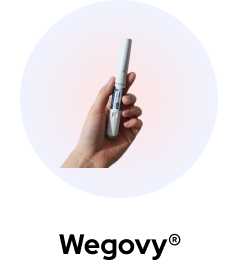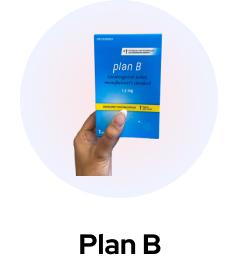Migraines are a common ailment for those with a uterus, especially of childbearing age. In fact many people who menstruate experience “premenstrual migraines” migraines at the start of their period (menstrual cycle). Depending on the type of migraines you experience and the type of birth control you are on, your migraines can improve or worsen.
How Do Birth Control Pills Work?
Birth control pills, commonly referred to as oral contraceptives, are a widely used method for preventing pregnancy. These pills contain synthetic forms of hormones—either estrogen and progesterone together (combined oral contraceptives, COCs) or progesterone alone (progesterone-only pills, POPs). These hormones work in several ways to prevent pregnancy.
- First, they prevent ovulation, meaning no egg is released for fertilization.
- Second, they thicken the cervical mucus, making it more difficult for sperm to enter the uterus.
- Finally, they alter the lining of the uterus, making it less likely for a fertilized egg to implant.
Beyond birth control, these hormonal adjustments can have various effects on the body, including potential impacts on migraine frequency and severity.
What Can I Do if I Think Birth Control Is Giving Me Headaches?
If you suspect that your birth control method is contributing to headaches or migraines, it’s essential to consult with your healthcare provider. They can help you determine if your birth control is the likely cause and discuss alternative options. For individuals experiencing migraines with aura, healthcare practitioners typically advise against using COCs due to the increased risk of stroke.
Instead, options like progesterone-only pills, injections, rings, patches, intrauterine devices (IUDs), and implants may be recommended. For those prone to migraines without aura, especially premenstrual migraines, adjusting the type or regimen of birth control may alleviate symptoms. Options such as short pill-free interval contraceptives or continuous use of birth control can help stabilize hormone levels, potentially reducing migraine occurrence.

Migraines with Aura
If you suffer from migraines with visual disturbances (called auras), your healthcare practitioner may advise you not to take combined oral contraceptives (COCs for short) which contain both estrogen and progesterone. Those people who take COCs and have migraines with aura have a higher risk than those who have migraines without aura (Graves, 2018).
The safest options for sufferers of migraines with aura are progesterone only birth control, including the progesterone-only pill, progesterone injection, ring, patch or IUDs, IUIs and implants.
Migraines without Aura
If you experience migraines, especially around the time of your period, you may be prone to premenstrual migraines which occur due to the change in hormone levels. For some people it can worsen if they take a birth control with higher estrogen or progestin levels. However, short pill free interval birth controls (like Yaz and Yaz Plus or Lolo) and continuous birth control (seasonale, seasonique, indayo) can reduce the length and/or number of period cycles you have thus reducing the change in estrogen levels. You may also have improvement with an IUD, IUI or implant as they can cause your periods to come less often.
Can Birth Control Relieve Headaches?
For some individuals, the right type of birth control can actually help relieve headaches and migraines. This relief is often due to the stabilization of hormone levels that can fluctuate naturally and contribute to migraine onset.
Especially for those who experience menstrual-related migraines, birth control that reduces the frequency of periods (such as continuous use pills or certain IUDs) can decrease the hormonal fluctuations that trigger these migraines.
However, the effectiveness of birth control in relieving migraines varies from person to person. It’s crucial to work with a healthcare provider to find a birth control method that suits your specific needs and to address any concerns about migraines or other side effects.
Regardless of the type of migraine, they are absolutely awful. If you don’t have a plan to proactively manage them, get in touch with the Jill Health medical team.
Frequently Asked Questions
Does getting off birth control help migraines?
Yes, discontinuing hormonal birth control can help reduce migraines in some individuals, particularly if their migraines are linked to the use of combined oral contraceptives (COCs) that contain estrogen and progesterone. The change in hormone levels caused by stopping these contraceptives may decrease the frequency or severity of migraines for some people.
What birth control pill is best for migraines?
For individuals prone to migraines, especially those with migraines with aura, progesterone-only birth control methods are often recommended. These options include the progesterone-only pill (sometimes called the mini-pill), injections, the contraceptive ring if it’s progesterone-only, patches, intrauterine devices (IUDs), and implants. These methods do not contain estrogen, which is linked to an increased risk of migraines in some people, making them a safer choice for those with a history of migraines.
How long do birth control migraines last?
The duration of migraines related to birth control can vary significantly among individuals. For some, these migraines might last just a few hours, while others could extend over several days. The specific duration often depends on the person’s sensitivity to hormonal changes induced by their birth control method and the nature of their migraines (with or without aura).
Typically, the migraines that occur in relation to hormonal birth control are tied to fluctuations in hormone levels, such as those happening during the pill-free week of a combined oral contraceptive cycle or in response to a new cycle of hormonal contraception.
Graves G. Contraception. In: CTC 2019: Compendium of therapeutic choices. Ottawa: Canadian Pharmacists Association; 2018. p. 1063–89.












 (US)
(US)